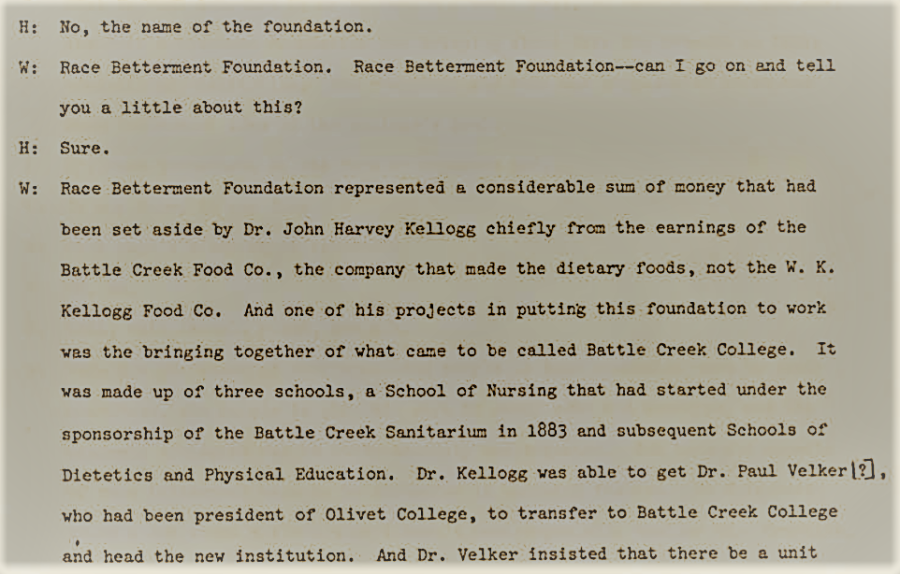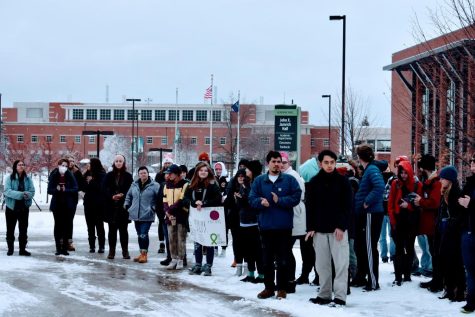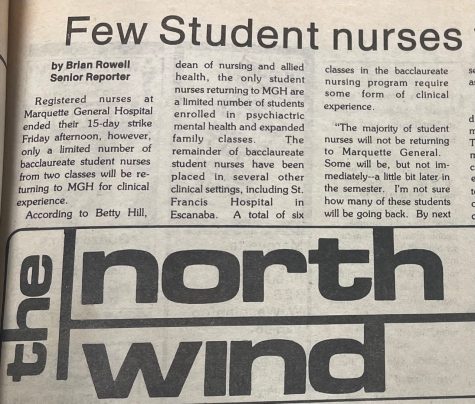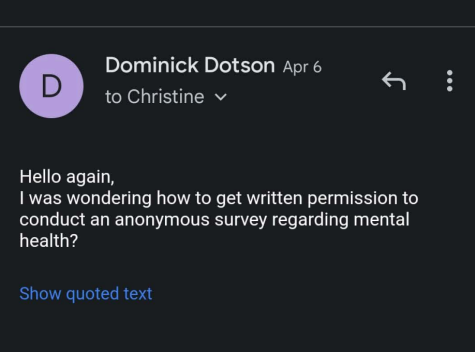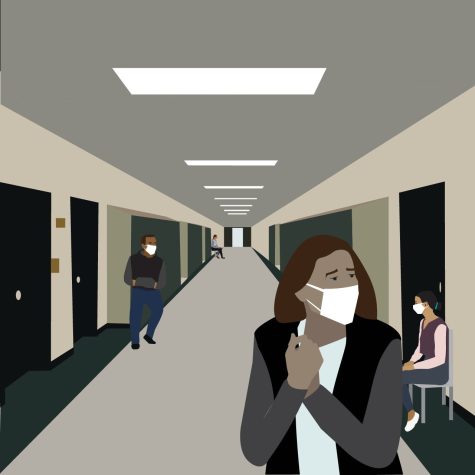Letter to the Editor—No mistake made removing West’s name from Science Building
Courtesy of NMU Upper Peninsula Studies Archives
TELL ME MORE-An extract from an archived interview by Miriam Hilton with Luther West, in which West discusses his association with the Race Betterment Foundation.
February 1, 2022
The Northern Michigan University Board of Trustees made the right decision when it voted last month to remove Dr. Luther West’s name from the edifice formerly known as West Science — now denominated simply as the Science Building. This action communicates to the general public, and to the NMU community in particular, that the university considers the value of an inclusive, pluralistic society to be a fundamental and paramount one.
However, two recent letters to the editor have pushed back against the university’s action. The first letter is written by Carl W. Anderson, an NMU alumnus who admittedly “grew up with [West’s] youngest son.”
Anderson first informs the reader that during his personal interactions with West over the years, he never once observed racist behavior, “only [West’s] concern for the wellbeing of all others.” In a strictly logical sense, though, Anderson’s own observations about West’s behavior would not automatically preclude the latter from exhibiting different behavior in a separate context — i.e., one in which Anderson was not personally observing him. As an aside, it’s worth noting that Dr. J. H. Kellogg — whom I discuss in more detail later — did not appear to embrace “any exclusionary measures or color lines in terms of lodging, medical treatment, athletic activities and dining arrangements for African Americans at the [Battle Creek] Sanitarium, admission to his medical school, or visits to his home,” even though he consistently espoused beliefs steeped in scientific racism to the general public over several decades.
Anderson then switches gears, contending that a person can’t necessarily “say one way or another” whether West “voluntarily attended a conference on eugenics and presented a paper there.” Yet he provides no concrete evidence that West’s attendance at the Third Race Betterment Conference was involuntary. And as I discuss later in this letter, the actual content of the academic paper West contributed to that conference reveals a man who was not just excited about eugenics in general, but one who was also exhilarated by the concept of “conservative eugenics.”
The second recent letter is written by John West, who is Luther West’s grandson. Among other things, John West asserts that his grandfather’s “only direct connection with eugenics was that he was obliged to study the subject and to teach a course on it, among all the other biology courses, when he was employed by [Kellogg] to be a one-man biology department at Battle Creek College from 1925-1938.” West then goes on to argue that “Guilt has not been shown other than by simple association.” In a hasty attempt to provide a hagiography of his grandfather, though, West distorts the historical record.
At the outset, it is important to contextualize Luther West’s professional connection with Kellogg, a man who espoused beliefs rooted in scientific racism long before West accepted a position with Battle Creek College.
For instance, in his 1881 book Plain Facts for Old and Young, Kellogg claimed that women of color did not experience pain when giving birth. “The freedom from pain in childbirth enjoyed by barbarous nations, is to the civilized woman a matter of wonder and amazement,” he wrote. “The same immunity from suffering is enjoyed by negro women, and by those of various other nations.” In that same book, Kellogg also strongly recommended that people avoid entering into intimate interracial relationships, contending that “such [relationships] are not only not conducive to happiness, but are detrimental to the offspring.”
Twenty years later, his views had not materially changed. As Kellogg infamously claimed in his 1901 book Ladies Guide in Health and Disease: Girlhood, Maidenhood, Wifehood, Motherhood, “the intellectual inferiority of the negro male to the European male is universally acknowledged.”
More than a decade later, Kellogg helped organize the First Race Betterment Conference. At the 1914 conference, where Kellogg gave the opening address, scientific racism was openly embraced by many of its participants. For example, Professor Sidney Gulick made a number of problematic statements about race. He proclaimed that “the intermarriage of whites and blacks may be bad” because the latter purportedly “have been developed under the tropics and [therefore] have never undergone social discipline.” Gulick also stereotyped people from China and Japan, albeit in a different way. He claimed that people from those two countries were generally “vigorous, brainy people” because they had “undergone severe social discipline” as a result of living “in the North Temperate Zone” for millennia.
Another decade later, Kellogg was still a strong proponent of eugenic principles. In fact, as president of Battle Creek College’s Board of Trustees during the 1920s, Kellogg required all of the college’s faculty to support eugenic principles, as demonstrated by the college’s statement on ideals and standards.
Based on the available historical record, including these specific pieces of evidence, the contemporary academic consensus appears to be that Kellogg’s public support for eugenics was inextricably intertwined with his views on race — views that amounted to scientific racism, an ideology whose roots took hold a few centuries ago during the so-called “Age of Enlightenment.”
As Dr. Brian C. Wilson, author of Dr. John Harvey Kellogg and the Religion of Biologic Living, succinctly says when referring to Kellogg’s support of eugenics, “We can honestly say that there is a bit of white supremacy in this.” Wilson also notes how Kellogg “was very concerned with Asians or the ‘yellow peril.’ He was very concerned Asians and especially the Chinese would be able to out-compete the West… He says, ‘If we don’t deal with this, we’re going to be ruled by ‘orientals’ in the future.’”
It is important to remember that it is in this particular context that West made the decision to immediately accept an academic position at Battle Creek College after obtaining his doctorate degree from Cornell University. And he served as a professor of biology and eugenics at Battle Creek College for 13 years, only leaving when the college finally folded in 1938.
While serving as a professor at the Battle Creek College, West did not limit his support of eugenics to the confines of the classroom — or even the campus grounds. For example, he served as a chairman for a local committee of the Fitter Families Contest, a competition in which human “participants (divided into small, medium and large family classes) were ranked based on the mental, physical and moral health of family members.” In addition, West attended the Third Race Betterment Conference in 1928. The conference was organized by the Race Betterment Foundation, which was also headed by Kellogg. At the conference, West addressed the topic of the “practical application of eugenic principles.” The language he used made it clear he was an active supporter of Kellogg’s popular brand of eugenics.
After West advocated for “a conservative sort of popular [eugenics] education,” he then claimed Battle Creek College was “the only collegiate institution specifically dedicated to Race Betterment” and was “quite properly to be considered a child of the Race Betterment Foundation.” Later at that conference, West also discussed his support for the creation of a eugenics registry that would place “the truly superior stocks on record.”
When he was interviewed by Miriam Hilton back in 1972 — more than 40 years after the Third Race Betterment Conference took place — West notably failed to repudiate his prior views on eugenics. In fact, when discussing the Race Betterment Foundation and Battle Creek College, West appeared to distance himself from those two institutions’ past support of eugenics and scientific racism, contending that those institutions were only interested in race betterment as a general idea, which could potentially come “in any form.”
So, when John West argues that his grandfather’s “Guilt has not been shown other than by simple association,” he conveniently ignores the pertinent history showing Luther West was an active supporter of “conservative eugenics” — a viewpoint that West never explicitly repudiated during his lifetime and, arguably, tried to hide from the public later in his life. Fortunately, John West’s belated attempt to whitewash his grandfather’s checkered past has not succeeded, as the NMU Board of Trustees recently voted to remove Dr. West’s name from the structure now known simply as the Science Building. All this notwithstanding John West’s unfounded claim of his grandfather being the victim of unjustified “cancel culture.”
However, our university community must remain vigilant — as people are continuously attempting to distort history for their own self-interests.
Aaron Loudenslager, former North Wind opinion editor (2012)
Editor’s Note: The North Wind is committed to offering a free and open public forum of ideas, publishing a wide range of viewpoints to accurately represent the NMU student body. This piece is a letter to the editor, written by a reader of the North Wind in response to North Wind content. It expresses the personal opinions of the individual writer and does not necessarily reflect the views of the North Wind. The North Wind reserves the right to avoid publishing letters that do not meet the North Wind’s publication standards. To submit a letter to the editor contact the opinion editor at [email protected] with the subject North Wind Letter.





















